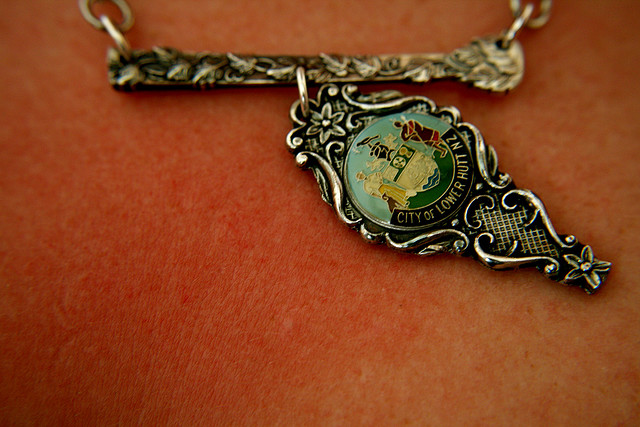Jewelry allergy is one of the most common allergies we see, particularly with all the body piercing case that we've seen lately. If you suffer from jewelry allergies you are likely to develop symptoms such as rashes, swelling and itching when coming into contact with jewelry. This is usually caused by the nickel in the metal from which the jewelry is made of. Individuals who are allergic to metals such as nickel may develop conditions such as contact dermatitis, which is a skin inflammation that is a form of irritation caused by foreign substance. Nickel is a silvery-white metal found in nature. It is usually mixed with other metals to produce alloys. For example, nickel-iron, which is used to manufacture stainless steel, is the most common nickel alloy. In the jewelry world, Nickel is found in many forms of jewelry and is used as the alloy that add stability to soft metals such as silver. The reaction is most usually not to the pure silver or gold, but to the metal additive.
Nickel is a silvery-white metal found in nature. It is usually mixed with other metals to produce alloys. For example, nickel-iron, which is used to manufacture stainless steel, is the most common nickel alloy. In the jewelry world, Nickel is found in many forms of jewelry and is used as the alloy that add stability to soft metals such as silver. The reaction is most usually not to the pure silver or gold, but to the metal additive.
What can you do to fight this distressing condition? The first step is to recognize the various signs of jewelry allergies or metal additives. These "allergy alert jewelry" include:
• Skin rashes as well as itching around the piercing site. This reaction typically remains at the area of the jewelry but may occasionally spread.
• An itchy, tingling feeling when the jewelry is worn for over 20 minutes. An allergic reaction to nickel can occur quite fast and presents itself as a rash or blisters within only a couple of days. If any of these symptoms arise, you should visit with a dermatologist (a physician specifically trained to diagnose and treat skin disease and allergies) so that you make sure that the diagnosis that is made is accurate. As the form of "allergy alert jewelry", it's important to have an accurate diagnosis before beginning treatment.
If any of these symptoms arise, you should visit with a dermatologist (a physician specifically trained to diagnose and treat skin disease and allergies) so that you make sure that the diagnosis that is made is accurate. As the form of "allergy alert jewelry", it's important to have an accurate diagnosis before beginning treatment.
After determining whether or not you are suffering from an allergic reaction, you should decide which treatment option is the best for use. Methods for treating an allergic reaction include:
• Use earring sleeves or another coating to prevent jewelry from coming into contact with the skin.
• Visit a dermatologist to receive a prescription for a medication to treat the dermatitis which is caused by your allergy to jewelry. This includes topic corticosteroids which are used to reduce the inflammation.
• Depending upon the extent of the allergy, the condition may require antibiotics.
• Do not scratch the area surrounding the jewelry. This may cause the skin barrier to break which might allow any bacteria to pass into the bloodstream through the skin.
• Wear metals such as 18K gold, sterling silver, or stainless steel. This type of jewelry does not contain nickel. It is more expensive but is certainly worth it.
• Make sure that the skin heals thoroughly prior to using any other form of jewelry. As soon as an allergic reaction occurs, cease wearing the jewelry immediately. In addition to avoid jewelry allergies, you should be careful with soap you used because when you use soap you are breaching the protective barrier of the skin. This will better enable the nickel in the metal of your bracelets, earrings and necklace to be absorbed. Therefore, do not use soap in the area you are wearing jewelry. However, please be aware that the "Jewelry allergy" information above is provided to supplement the care provided by your physician. It is neither intended nor implied to be a substitute for professional medical advice.
In addition to avoid jewelry allergies, you should be careful with soap you used because when you use soap you are breaching the protective barrier of the skin. This will better enable the nickel in the metal of your bracelets, earrings and necklace to be absorbed. Therefore, do not use soap in the area you are wearing jewelry. However, please be aware that the "Jewelry allergy" information above is provided to supplement the care provided by your physician. It is neither intended nor implied to be a substitute for professional medical advice.
How to Treat Jewelry Allergies
Others : Jewelry Allergies, Jewelry Guide, Nickel Allergy
Subscribe to:
Post Comments (Atom)






0 comments:
Post a Comment